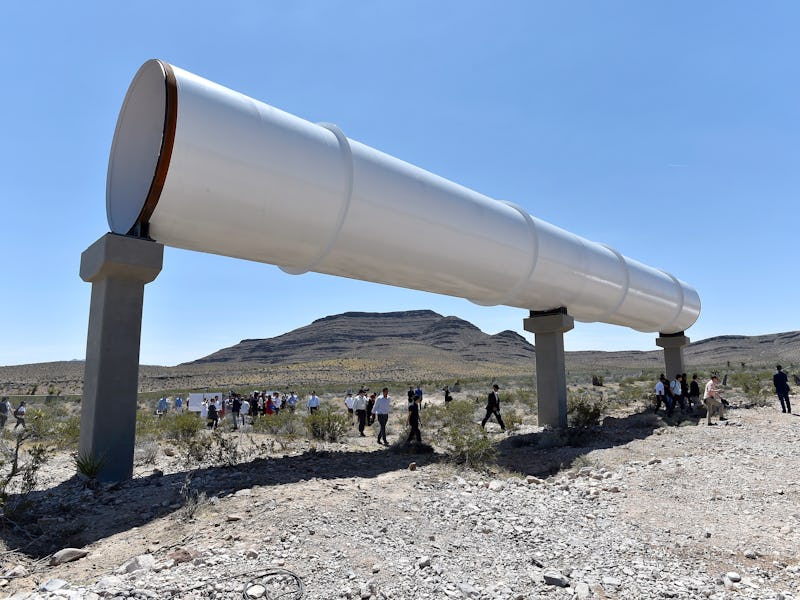Hyperloop One and Russia Want to Make a New Silk Road Connecting China to Europe
Welcome to the present-day equivalent of the Space Race.

Hyperloop One, the company that ran the first public hyperloop test in May, announced a partnership with the city of Moscow and a Russian transportation investment firm called the Summa Group today. And while the partnership only includes building a hyperloop for Moscow’s 16 million people, the ultimate goal is much grander.
“Our longer term vision is to work with Russia to implement a transformative new Silk Road,” says Shervin Pishevar, co-founder of Hyperloop One, adding it will be “a cargo Hyperloop that whisks freight containers from China to Europe in a day.”
There are a few logistical complications to using a hyperloop to ship cargo — primarily the cost by volume for the relatively small amount of cargo a hyperloop pod could carry — but imagine being able to order a high-value item from halfway across the world in the morning and have it delivered by the afternoon. A 21st-century Silk Road has the potential to revolutionize how products are moved just as much as the original Silk Road did for the Han Dynasty, or how much the internet Silk Road revolutionized how drugs are moved.
Hyperloop technology has improved dramatically since Elon Musk released his first white paper on the hyperloop in 2013. Hyperloop One had its first five-second test in Nevada, which was done without Musk’s help, and Dubai, Slovakia, and other Eastern European countries are looking to build hyperloops of their own.
It’s no surprise that Hyperloop One and its major competitor, Hyperloop Transportation Technologies, have looked outside of the United States to kick off initial projects. Hometown regulators aren’t exactly jumping on the tracks to fund and legalize these type futuristic infrastructure projects.
Yet a hyperloop in Russia offers “an economically attractive alternative to the existing global logistics flows,” Summa Group’s billionaire owner Ziyavudin Magomedov says about the project. In other words: Using a hyperloop to ship cargo could make bank.
With the Russian government’s involvement, the worldwide race to build the first hyperloop is looking more like a modern version of the 1960s Space Race. Russia’s Transport Minister Maxim Sokolov said back in May the country is “ready as no other country” is to build a hyperloop, and Hyperloop One and Moscow’s signed Memorandum of Understanding proves that commitment.
Now that Hyperloop One has the Russian government’s backing and a world-changing goal, it just has to make something that can actually travel at hyperloop speeds and stop without the help of a bed of sand.